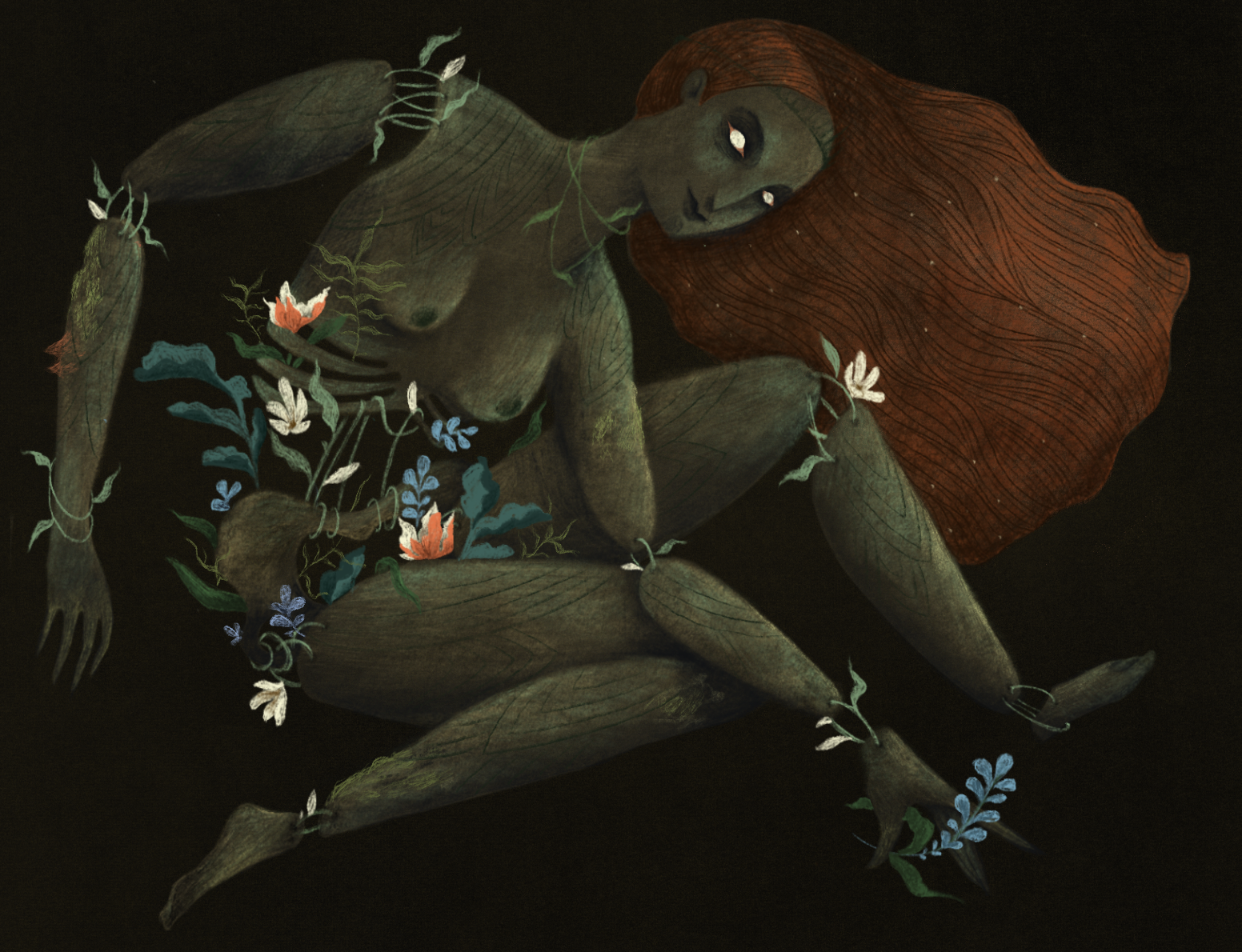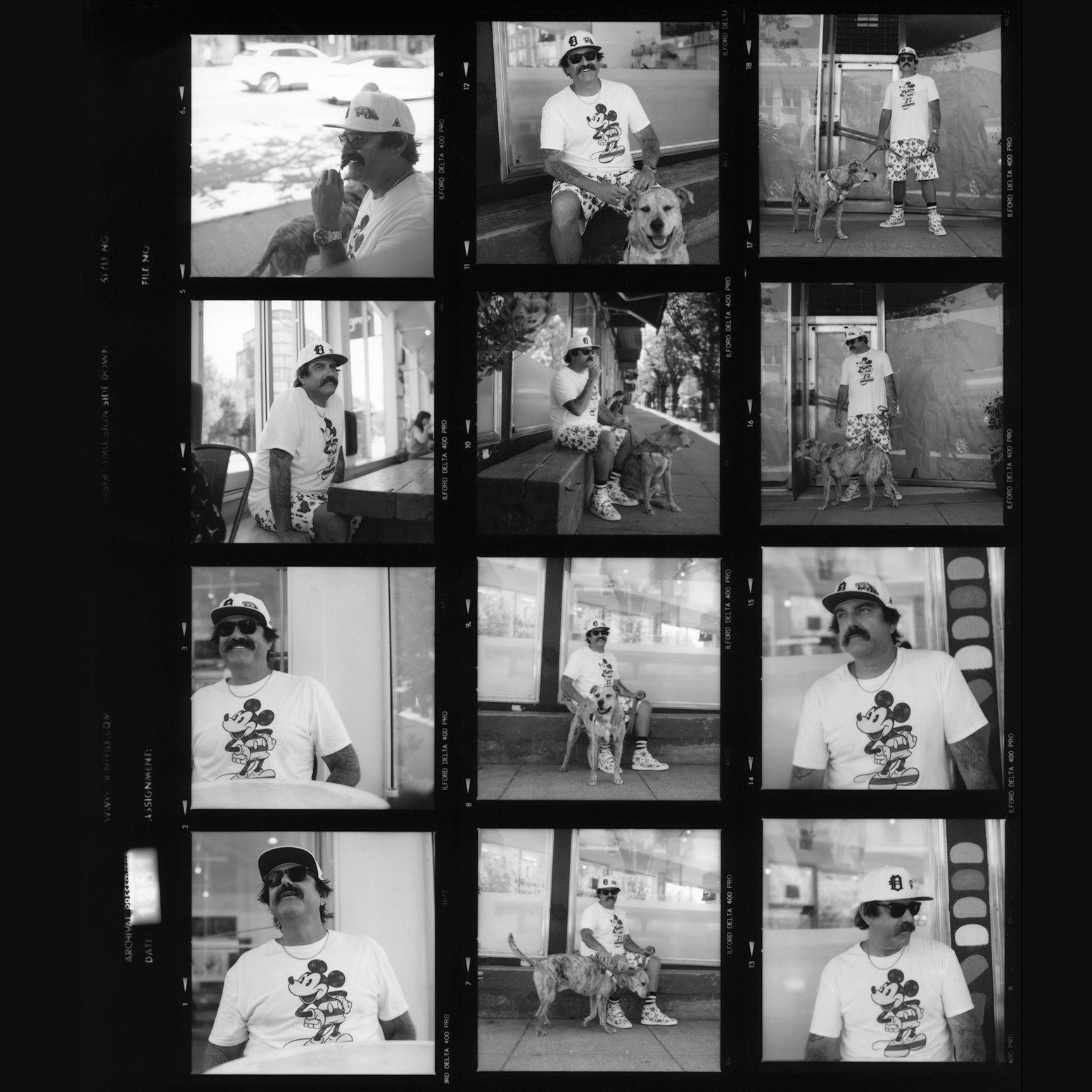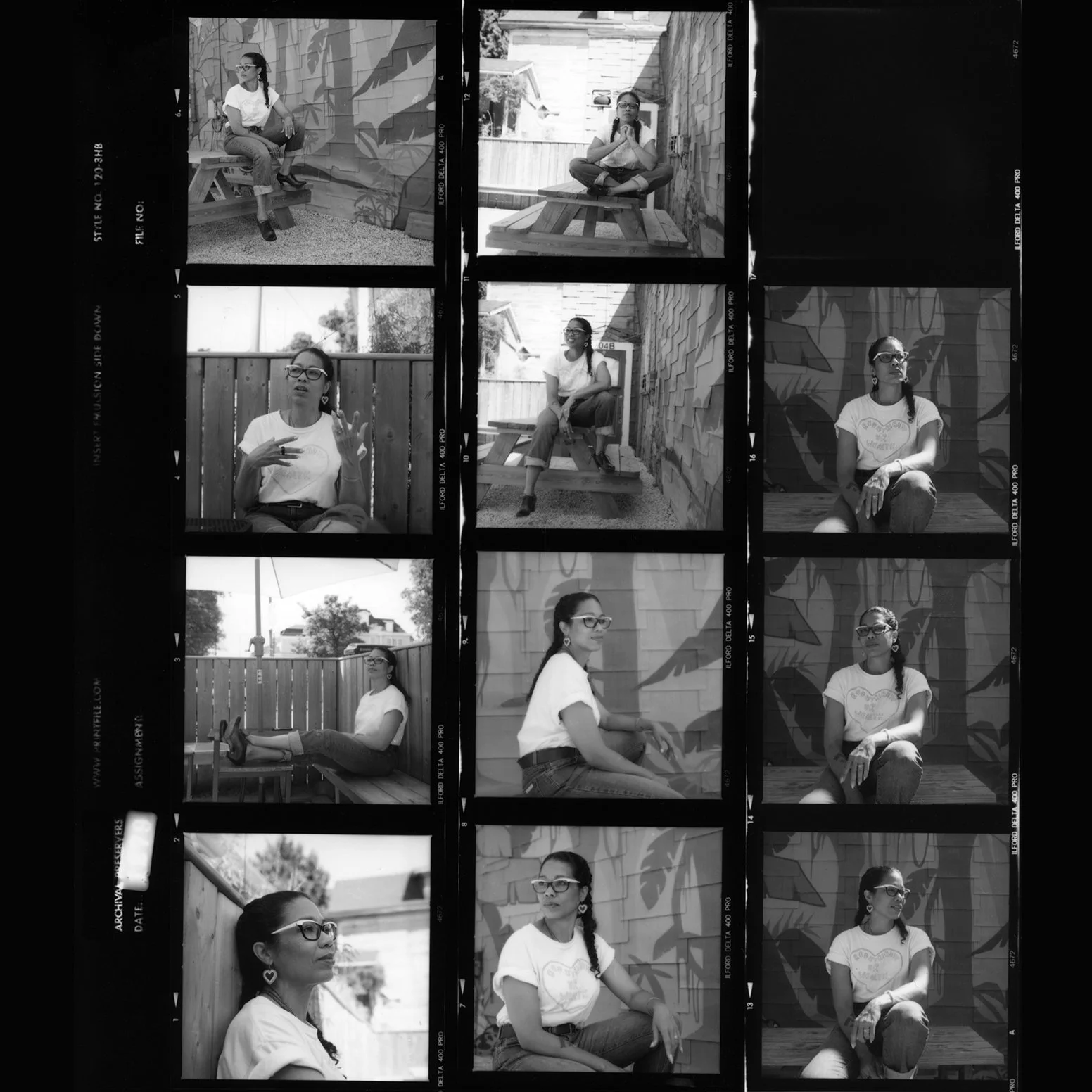Red Glimmer: The play that promises to exfoliate your neurotransmitters
/When I ask Patricia Trinh why people should pick Red Glimmer from Vancouver Fringe Festival’s 101 show lineup this year, the play’s writer and director answers “do it for science.”
The sci-fi dramedy is the second production created by Dusty Foot Productions, an emerging, female and non-binary centric interdisciplinary theatre company. Tackling mental health through an interdimensional science experiment, the show even takes place in a lab—the festival’s new venue in East Vancouver, What Lab.
Entering the humid space on opening night, the lab is set up as the antithesis of sterile—A Marie Kondo panic attack in the making. One of the show’s two actors, Marissa Burton, is seated centre stage, her back to the audience as they meander in. Everything—from her wheeled office chair, the curtained changing room downstage and the empty chip bags strews about—is covered in white feathers. When Alysson Hall emerges as Scientist M4.66 from the pseudo room, crimson leggings leading, we see the first glimmer of red.
Science is a word exclaimed jovially at the start of the 50 minute show, when the audience is still safe in the arms of Hall’s comedic timing while she explains her presence to Burton’s character, The Woman.
“There is something deep in your subconscious that wants to buy you your very own emotional facelift. A spa day for your neurological pathways,” Hall recites. “We’re going to exfoliate your neurotransmitters, hose down your hormones and give your heart a new coat of paint.”
For Trinh, the story behind Red Glimmer all started with an ATV crash in Thailand that left her with a fractured eye socket.
“Logically, I know and remember it was the worst pain I’ve ever felt, but as humans, we really can’t re-experience somatosensory sensations. It’s as if your brain creates this natural defence mechanism so you aren’t able to re-experience physical pain.”
That got Trinh thinking about what life would be like if the brain could do the same thing for emotional pain, fast tracking the healing process surrounding trauma. In the world of Red Glimmer, Scientist M4.66 has invented the Emotional Facelift, an experimental procedure meant to cure The Woman of her deep depression.
Hall’s voice leads the audience through complicated scientific concepts, hooking the woman up with pads and wires. Burton performs silently all the while, her emotional pain translated through contemporary dance. The monologues are long and complicated, but Hall recites them with skillful ease. As she explains the procedure, repeatedly stopping herself from calling it an experiment, I find myself half-wondering ‘where can I sign up?’
Trinh hopes audiences will be able to relate to the play, despite her eerie, heightened and abstract approach to the heavy topic of mental health.
“As content, it's still a relatively new being discussed, and there are many different ideas around what mental health is, what it looks like and feels like,” says Trinh. “I think by tackling this story in a sci-fi realm, that allows us to embellish certain things and jump into the stakes of every situation.”
Hall’s black kitten heels click loudly against the linoleum floors as she collects booze bottles, cigarette boxes and chip bags--all empty and covered in white feathers--from inside the curtained room and dumping them onstage. The woman, she notes, has a lot of mental baggage.
Once the exper…procedure is set up, Hall points a special machine at the woman, indicating the start of the healing process with the line “click” before climbing up a ladder above the curtained room. Holding a white balloon, she waits, watching as the woman’s mind transforms into the bathroom of a nightclub.
Here, we hear Burton speak for the first time, as a bitter birthday-girl snorting lines of drugs between vomiting bouts into the office-chair-turned-toilet. Who she’s talking to, or about, while breaking the first wall is unclear, but the sounds of sirens that emerge signal someone has overdosed by the end of the scene.
Hall pops the balloon, and red confetti falls as Burton rips off one of four masks before the woman and scientist have their first conversation.
“Red Glimmer really takes from so many different elements of art and throws it into one show,” Trinh explains. “We explore movement and poetry and we explore mask work- exploring how many different masks you might wear in your lifetime and what that means and where it might come from.”
The scene that removes the woman's second mask is a manic circuit of choreography. Burton rises up and down from the office chair, rearranges a collection of party hats on one side of the stage and repeatedly pulls on a blazer, only to rip it off. The character is swimming through a sea of rejection letters to her applications, and verbalizes her avoidance of spending any time alone. The scientist, all the while, hypothesizes what would happen if our digital footprint included selfies of our times in distress.
“Maybe if we started selling ugly, more people would buy it.”
In a city like Vancouver, where busyness is often exchanged as social currency, I doubt I am alone in relating to the woman’s mantras, looped and projected from the speakers:
“I do less when I have more time, I do more when I have less time,” weaves with “They say it will make you happy.”
Erika Champion’s sound design is almost too overwhelming, but then another balloon pops and another mask is removed. The projections by Cameron Fraser and lighting designs of Madison Silva combine to convey a child running along the walls of the woman’s mind. The sound of young laughter fights against the noise of ocean waves. Both tracks leave the scientist in distress. We learn with the woman that the procedure is not going as planned, and the scientist is perhaps too personally traumatized to be leading it.
Reliving rape rips the third mask from the woman’s face, after Burton dances a duo between herself and a flannel shirt. The woman still loves her abuser, and she has yet to be convinced the child running inside her mind wants anything more than someone to play with. But the scientist tells her she must fight the urge, to let go of her addiction to trauma.
“Love is complicated,” the scientist repeats. “Especially self love.”
Together they manage to clear the stage of all the garbage, packing the mental mess into a red rolling suitcase that Hall takes with her as she leaves the woman behind with a hand mirror to face her mask-free appearance.
Due to technical difficulties, the lights don’t come back on as Hall and Madison take their bow. Even if the curtain call had gone as planned, I don’t imagine the audience would have left any less dazed. Wishing I had someone to process the performance with, I resist the urge to call Trinh to congratulate her for achieving her goal with this show.
“I'm excited for the opportunity to share a story that might make someone not feel so alone,” Trinh had told me, hours earlier. “To say, ‘Here are some experiences, and if it helps you in any way to see them, feel them, and know that other people are also going through them, then wonderful. I've gotten everything I need to get out of it.”
Red Glimmer has seven shows during the 2019 Vancouver Fringe Festival. Find more information and tickets here.


















